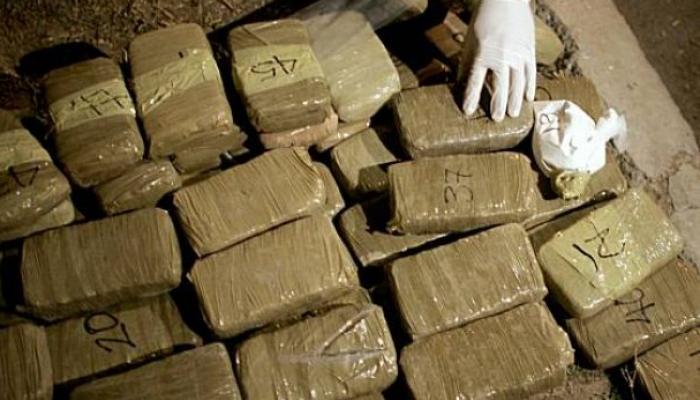Havana, March 20 (RHC) —Cuba last year seized 2,438 kilograms of drugs, most of them marijuana, coming from bales by international drug trafficking operations that did not have the island as their destination. This is the smallest amount of drugs seized in the last three years.
An article by Granma newspaper pointed out on Tuesday that according to the Ministry of the Interior, 77 percent of the drug confiscated in the country came from bales that washed ashore or were adrift in the sea.
At the air border, 49 operations attempting to introduce drugs were neutralized, most of them for commercial purpose inside the country. As a result of these operations, 54 Cubans and 36 foreigners were taken into custody and a total of 81 kilograms of narcotics were seized, more than the 64 kilograms of the previous year.
The article also pointed out that these operations were organized by criminal networks made up of foreigners and nationals and were mainly concentrated in Havana’s José Martí international airport, although one was investigated by Holguín's Frank País airport, as well as two cases through the postal channel and one through the capital's international cargo terminal.
When referring to the battle against consumption and internal trafficking, the main actions of confrontation were aimed at neutralizing efforts by individuals to recover bales washed ashore; preventing isolated cases of marihuana crops; the transfer of these substances to other territories, as well as the prevention of the consumption of drugs and medications with similar effects.
As a result of the confrontation domestically, 83 kilograms of drugs were seized, an increased from the 18 kilograms of the previous year, thus preventing their marketing and consumption.
Granma's article highlighted the cooperation of the Ministry of the Interior and the Revolutionary Armed Forces in close coordination with other institutions, social organizations and the masses, to increase deterrence and confrontation actions through the so called Detachments Looking at the Sea and institutions that operate in coastal areas.
Similarly, the Border Guard Command has continued to exchange information in real time with anti-drug services in the area (United States, Jamaica, Bahamas and Mexico) and investigations are continuing to ensure the necessary elements of evidence and to request, through operational cooperation, the extradition and criminal prosecution of Cubans living abroad who promote such operations so that they do not go unpunished.
Granma stated that the results of 2018 confirm Cuban authorities firm commitment to achieving a society free of illicit drugs, as a vital element in achieving sustainable development and the well-being of Island’s people.


